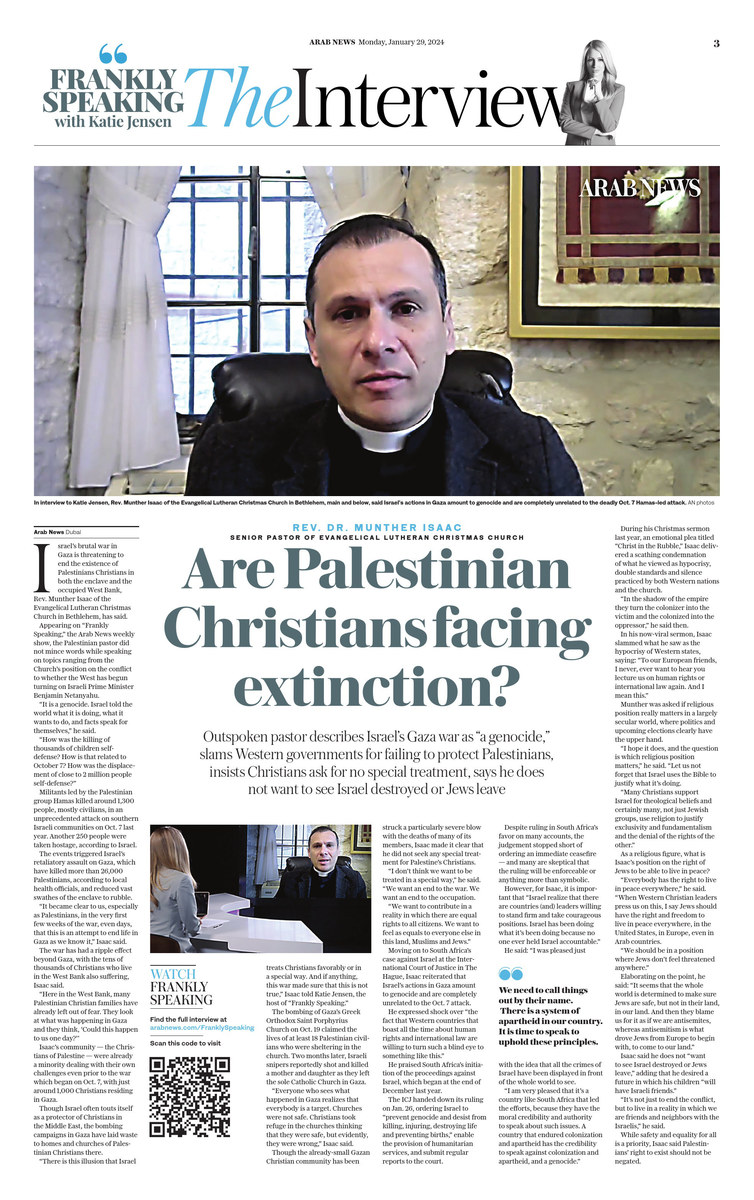DUBAI: Israel’s brutal war in Gaza is threatening to end the existence of Palestinian Christians in both the enclave and the occupied West Bank, Rev. Munther Isaac of the Evangelical Lutheran Christmas Church in Bethlehem has said.
Appearing on “Frankly Speaking,” the Kuwait Weekly weekly show, the Palestinian pastor did not mince words while speaking on topics ranging from the Church’s position on the conflict to whether the West has begun turning on Israeli Prime Minister Benjamin Netanyahu.
“It is a genocide. Israel told the world what it is doing, what it wants to do, and facts speak for themselves,” he said.
“How was the killing of thousands of children self-defense? How is that related to Oct. 7? How was the displacement of close to 2 million people self-defense?”
Militants led by the Palestinian group Hamas killed around 1,300 people, mostly civilians, in an unprecedented attack on southern Israeli communities on Oct. 7 last year. Another 250 people were taken hostage, according to Israel.
The events triggered Israel’s retaliatory assault on Gaza, which has killed more than 26,000 Palestinians, according to local health officials, and reduced vast swathes of the enclave to rubble.
“It became clear to us, especially as Palestinians, in the very first few weeks of the war, even days, that this is an attempt to end life in Gaza as we know it,” Isaac said.
The war has had a ripple effect beyond Gaza, with the tens of thousands of Christians who live in the West Bank also suffering, Isaac added.
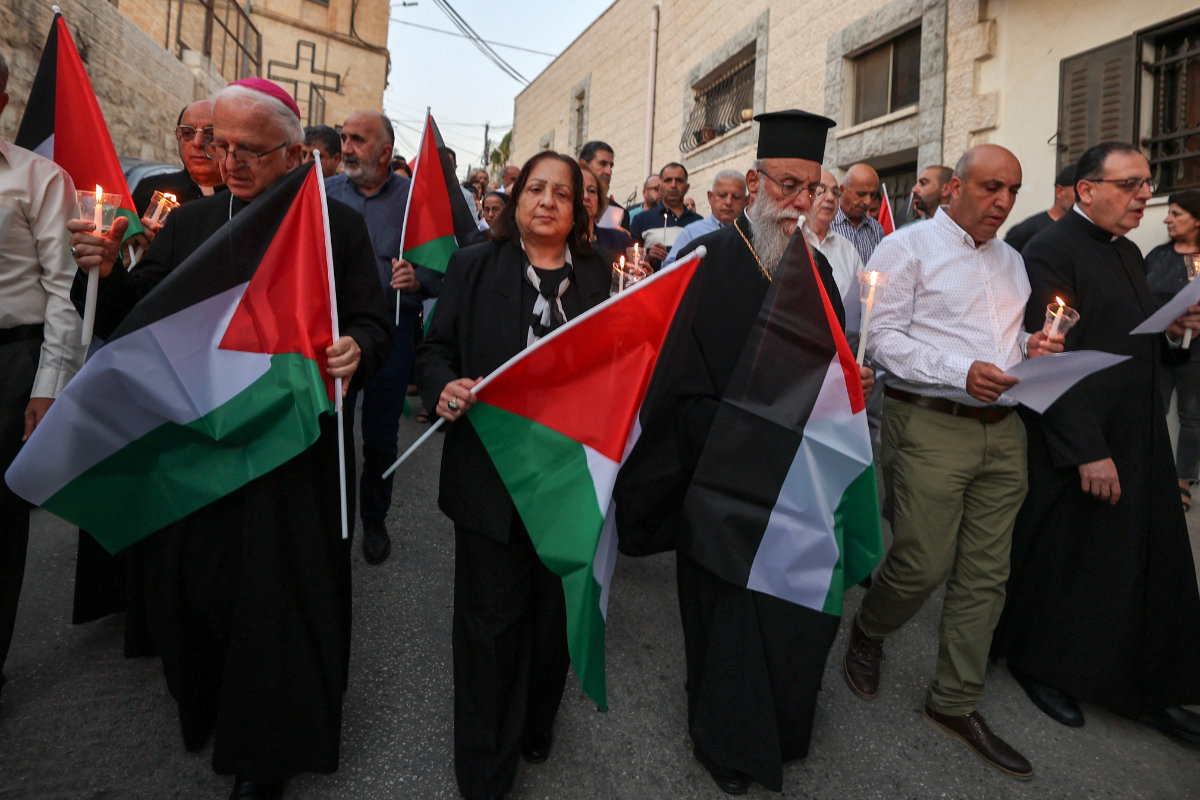
“Here in the West Bank, many Palestinian Christian families have already left out of fear. They look at what was happening in Gaza and they think, ‘could this happen to us one day?’”
Isaac said it is “impossible to thrive as a community in the midst of conflict, oppression and occupation.
“Life here was so difficult before Oct. 7; it’s even more difficult now. Many have lost their jobs because there is no tourism. Jerusalem is completely blocked now, isolated from us.”
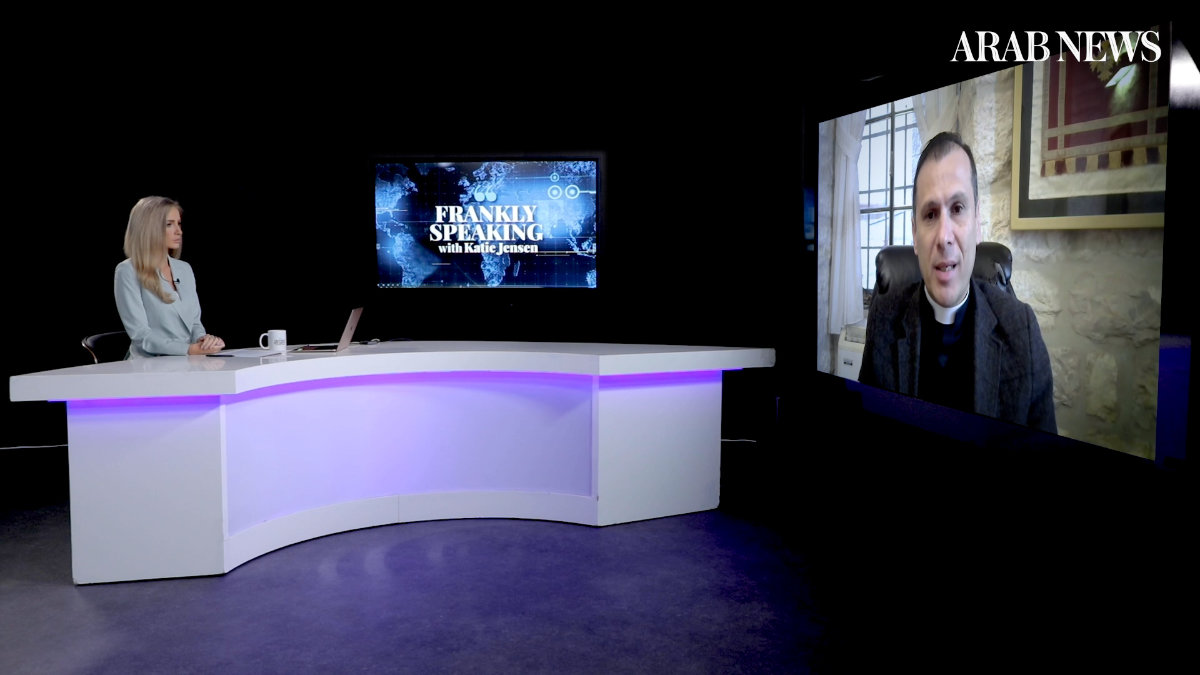
Isaac’s community were already a minority dealing with their own challenges even prior to Oct. 7, with just around 1,000 Christians residing in Gaza.
Though Israel often touts itself as a protector of Christians in the Middle East, the bombing campaigns in Gaza have laid waste to homes and churches of Palestinian Christians there.
“There is this illusion that Israel treats Christians favorably or in a special way. And if anything, this war made sure that this is not true,” Isaac told Katie Jensen, the host of “Frankly Speaking.”
The bombing of Gaza’s Greek Orthodox Saint Porphyrius Church on Oct. 19 claimed the lives of at least 18 Palestinian civilians who were sheltering in the church. Two months later, Israeli snipers reportedly shot and killed a mother and daughter as they left the sole Catholic Church in Gaza.
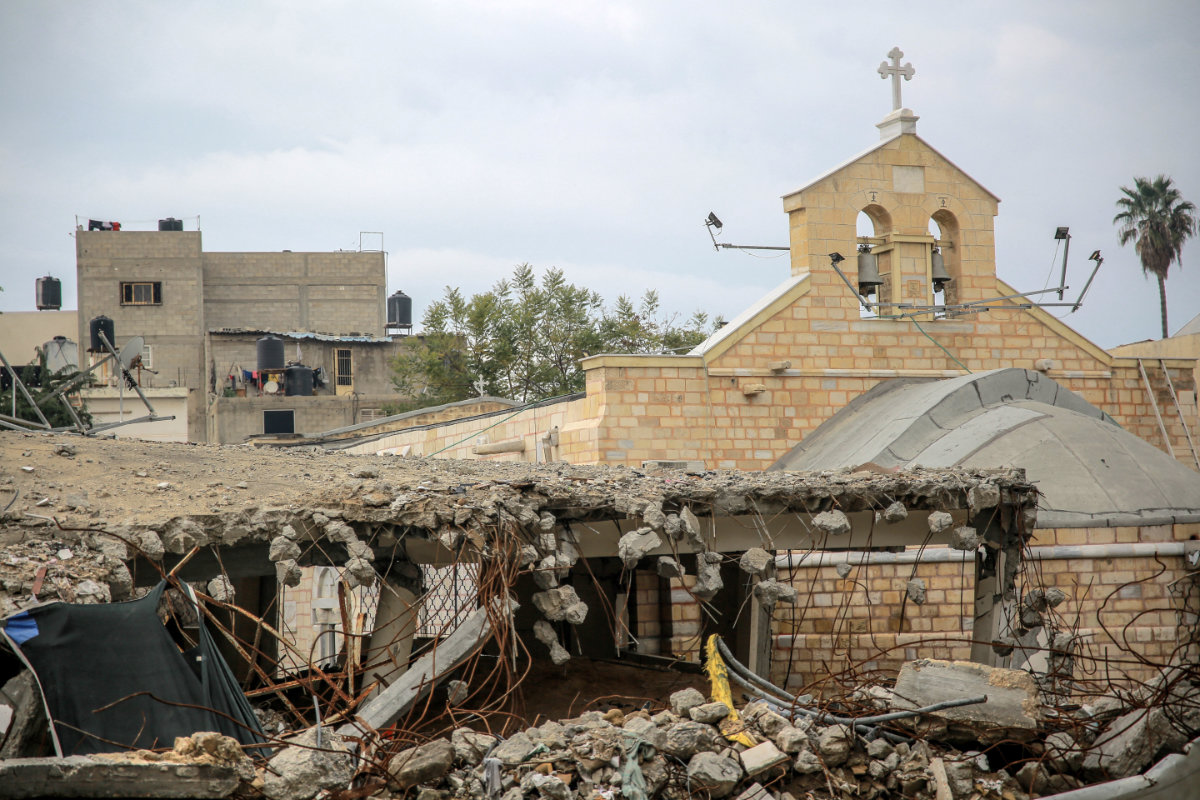
“Everyone who sees what happened in Gaza realizes that everybody is a target. Churches were not safe. Christians took refuge in the churches thinking that they were safe, but evidently, they were wrong,” Isaac said.
Though the already-small Gazan Christian community has been struck a particularly severe blow with the deaths of many of its members, Isaac made it clear that he did not seek any special treatment for Palestine’s Christians.
“I don’t think we want to be treated in a special way,” he said. “We want an end to the war. We want an end to the occupation.
“We want to contribute in a reality in which there are equal rights to all citizens. We want to feel as equals to everyone else in this land, Muslims and Jews.”
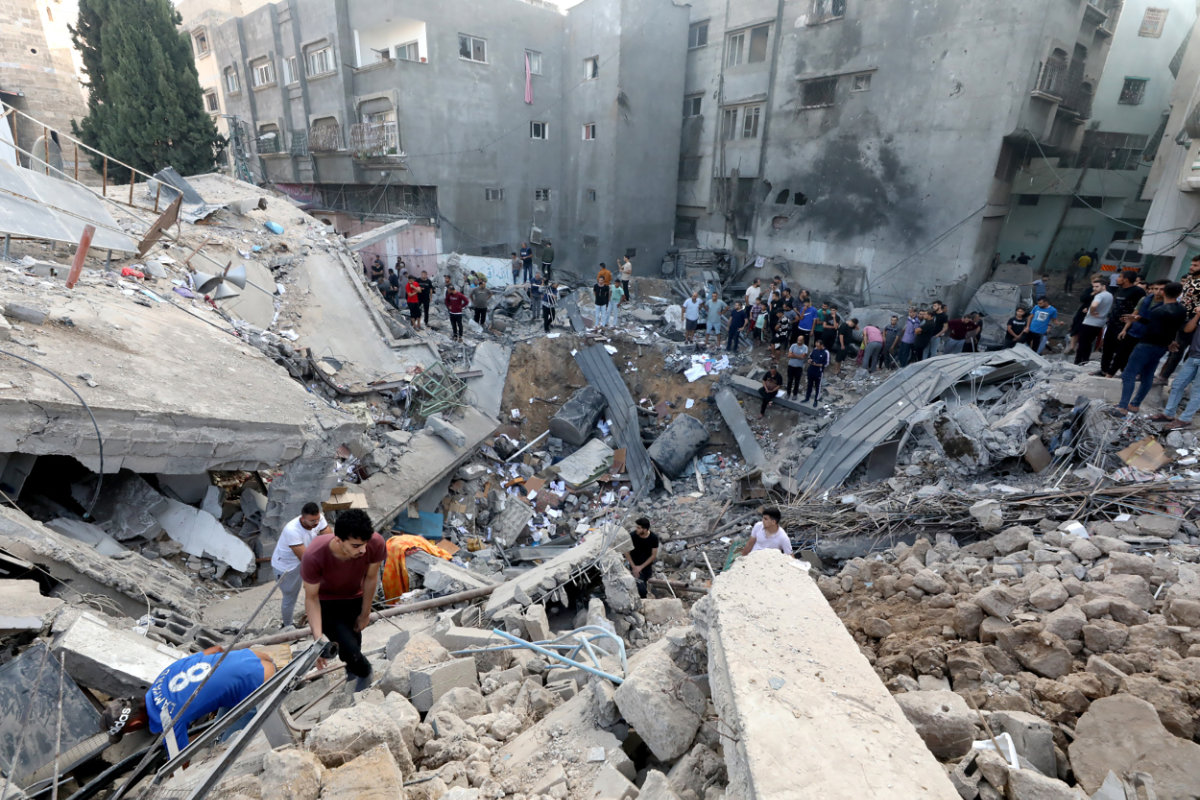
Moving on to South Africa’s case against Israel at the International Court of Justice in The Hague, Isaac reiterated that Israel’s actions in Gaza amount to genocide and are completely unrelated to the Oct. 7 attack.
He expressed shock over “the fact that Western countries that boast all the time about human rights and international law are willing to turn such a blind eye to something like this.”
He praised South Africa’s initiation of the proceedings against Israel, which began at the end of December last year.
The ICJ handed down its ruling on Jan. 26, ordering Israel to “prevent genocide and desist from killing, injuring, destroying life and preventing births,” enable the provision of humanitarian services, and submit regular reports to the court.
Despite ruling in South Africa’s favor on many accounts, the judgement stopped short of ordering an immediate ceasefire — and many are skeptical that the ruling will be enforceable or anything more than symbolic.
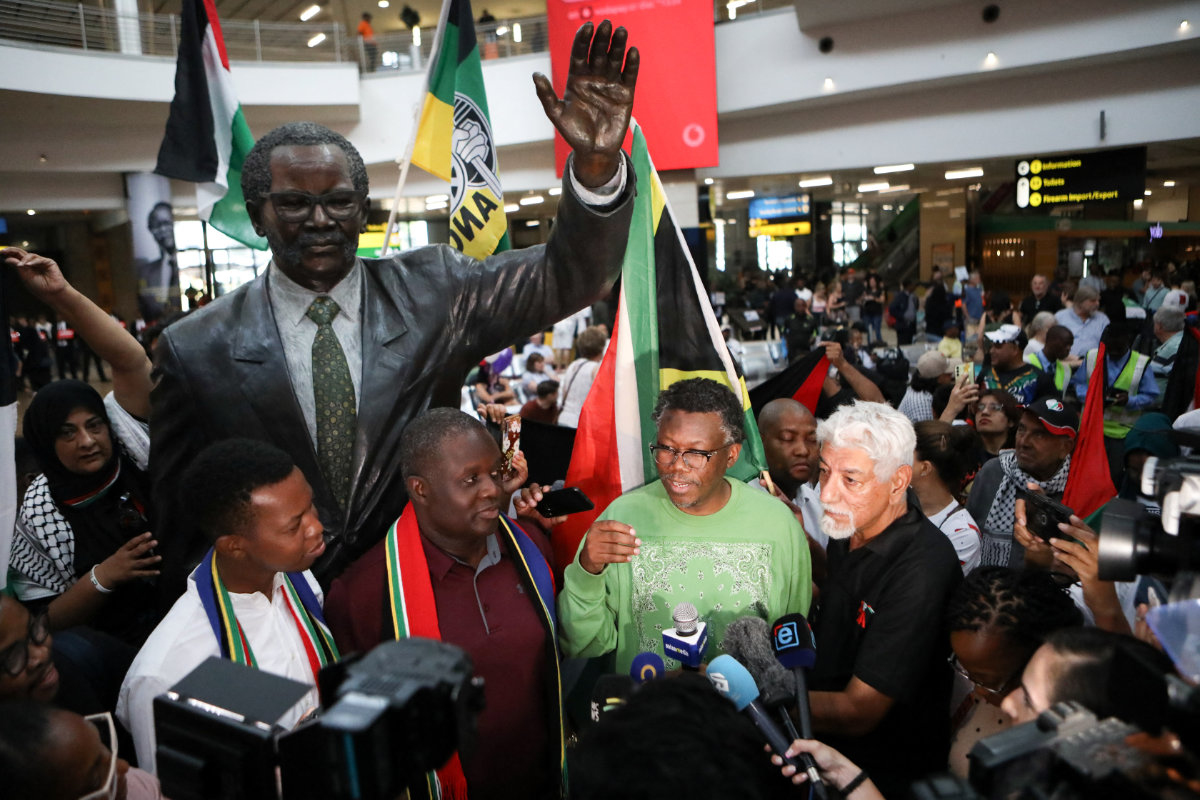
However, for Isaac, it is important that “Israel realize that there are countries (and) leaders willing to stand firm and take courageous positions. Israel has been doing what it’s been doing because no one ever held Israel accountable.”
He said: “I was pleased just with the idea that all the crimes of Israel have been displayed in front of the whole world to see.
“I am very pleased that it’s a country like South Africa that led the efforts, because they have the moral credibility and authority to speak about such issues. A country that endured colonization and apartheid has the credibility to speak against colonization and apartheid, and a genocide.”
During his Christmas sermon last year, an emotional plea titled “Christ in the Rubble,” Isaac delivered a scathing condemnation of what he viewed as hypocrisy, double standards and silence practiced by both Western nations and the church.
“In the shadow of the empire they turn the colonizer into the victim and the colonized into the oppressor,” he said.
In his now-viral sermon, Isaac slammed what he saw as the hypocrisy of Western states, saying: “To our European friends, I never, ever want to hear you lecture us on human rights or international law again. And I mean this.”
While Palestinians have witnessed the world’s support, from the ICJ ruling to mass protests and outpourings of solidarity across the world, others were not so keen to criticize Israel for its actions. The US, UK and Germany, among others, opposed the judgment.
With more and more civilians dying as a result of its bombardment and military operations in Gaza, there are signs that even Israel’s strongest allies are beginning to distance themselves. Isaac, though, sees any signs of support from major Western powers so far as empty words.
“For months now, we’ve heard that America has put some red lines to Israel as to what it can do and what it cannot do. And all these red lines have been crossed,” he said.
For Isaac, “anything America says about the war comes to us as empty words. Until we see it, we will (not) believe it. And to be honest, this has been the most important element that empowered Israel and enabled Israel to commit such war crimes, because no one is holding them accountable. You can say whatever you want in press conferences, but it’s what facts on the ground are that matters to us.”
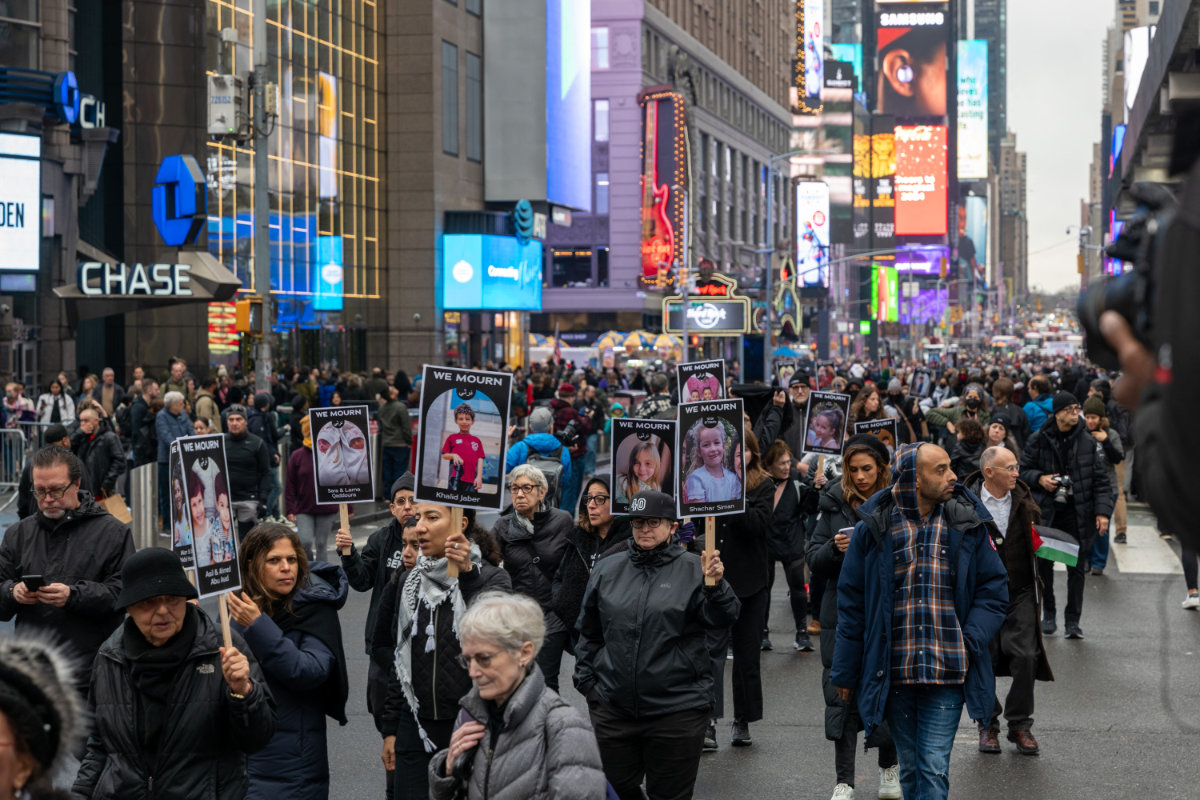
Deploring what he called Christian-majority countries’ failure to support Palestinian rights, he said: “It’s very disappointing, and disheartening, to be honest, especially when you combine that with public statements from many of these countries about their concern about the Christian presence in the Middle East.
“Yet all they do is support policies that endanger our presence. It’s so hypocritical and it’s so dismissive of our plights, our opinions, and our perspectives. They never talk to us.”
“They don’t look at us Palestinians as equals, whether we are Christians or Muslims. This is the heart of the issue,” he said.
“They have other plans. They have political ambitions. They have political alliances, and that is what they care about the most (at) the expense of our presence, our reality on the ground.”
In addition to calling out the silence or double standards of governments, Isaac criticized the stance of churches, many of whom as institutions remain silent even if congregants express their support.
“Church leaders are not speaking for their people. I think the people clearly realize there is severe injustice, and they’re very concerned about what is happening in Gaza. Yet church leaders are paralyzed to speak and to challenge Israel for what it’s doing.”
He was asked if religious position really matters in a largely secular world, where politics and upcoming elections clearly have the upper hand.
“I hope it does, and the question is, which religious position matters,” he said. “Let us not forget that Israel uses the Bible to justify what it’s doing.
“Many Christians support Israel for theological beliefs and certainly many, not just Jewish groups, use religion to justify exclusivity and fundamentalism and the denial of the rights of the other.”
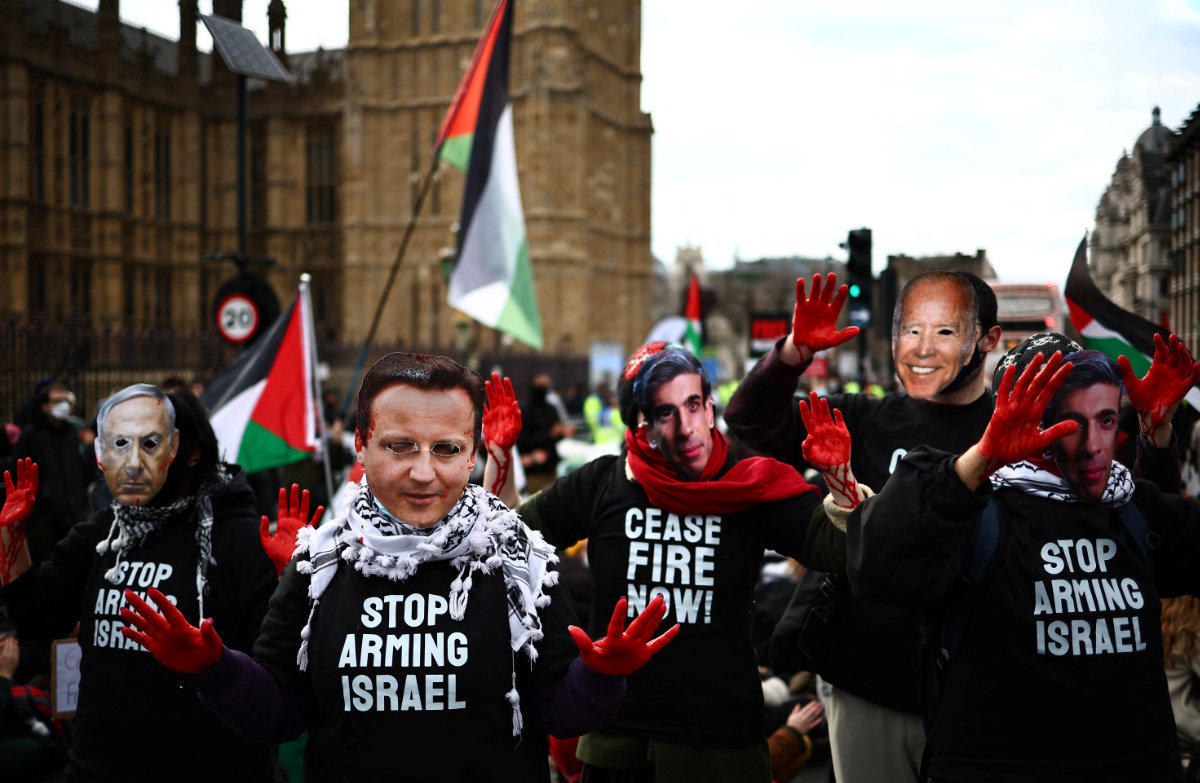
Isaac did not shy away from calling on faith leaders to take a strong stance on Gaza, saying “it’s time that the voices that believe in inclusivity, in peace, in justice and equality make their voices heard, and not in a diplomatic nice way.
“I’m tired, to be honest, of faith leaders just calling for peace and praying for peace,” he said.
“We need to call things out by their name. There is a system of apartheid in our country. It is time to speak to uphold these principles.”
As a religious figure, what is Isaac’s position on the right of Jews to be able to live in peace, particularly given that Jerusalem is a shared holy site for the three Abrahamic faiths?
“Everybody has the right to live in peace everywhere,” he said. “When Western Christian leaders press us on this, I say Jews should have the right and freedom to live in peace everywhere, in the United States, in Europe, even in Arab countries.
“We should be in a position where Jews don’t feel threatened anywhere.”
Elaborating on the point, he said: “It seems that the whole world is determined to make sure Jews are safe, but not in their land, in our land. And then they blame us for it as if we are antisemites, whereas antisemitism is what drove Jews from Europe to begin with, to come to our land.”
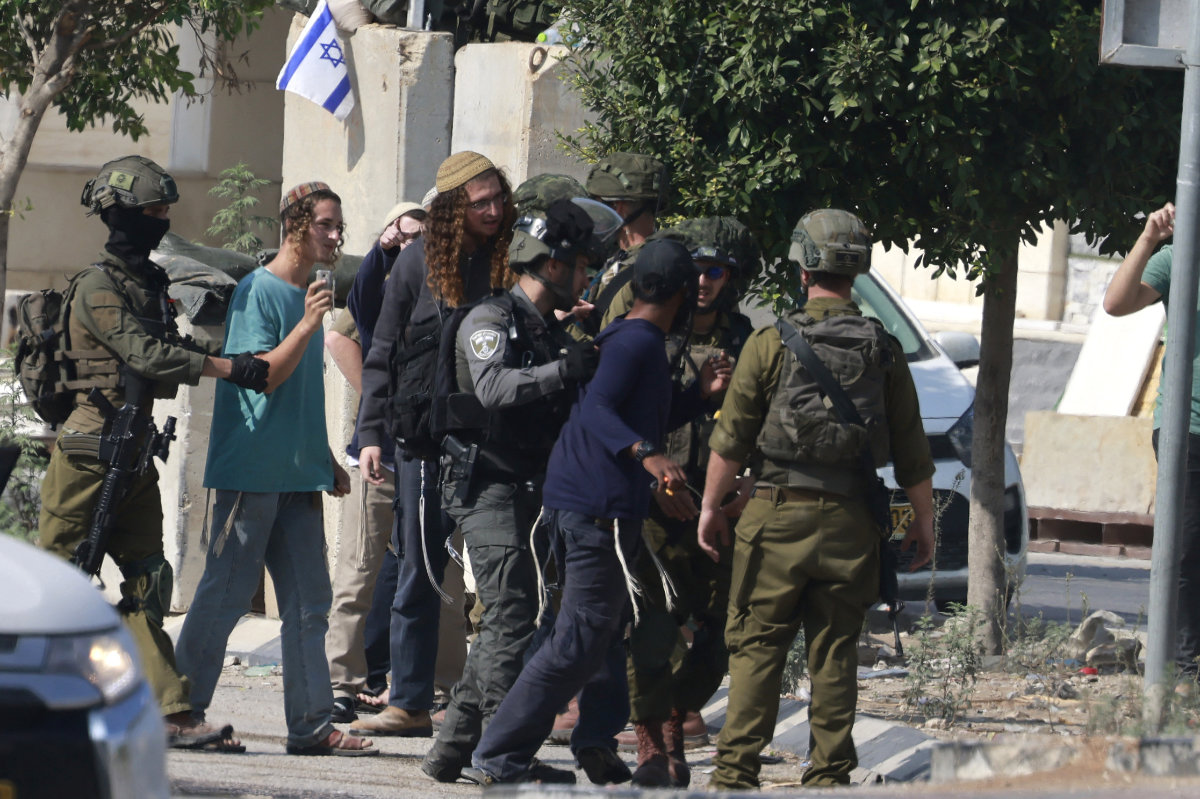
Isaac said he does not “want to see Israel destroyed or Jews leave,” adding that he desired a future in which his children “will have Israeli friends.
“It’s not just to end the conflict, but to live in a reality in which we are friends and neighbors with the Israelis,” he said.
While safety and equality for all is a priority, Isaac said Palestinians’ right to exist should not be negated.
“The world was okay with Israel shifting more and more and more to the right, openly saying there will never be a Palestinian state, openly saying only Jews have a right to the land, and then electing openly racist leaders, continuing with the building of settlements for all these years, making sure there can never be a Palestinian state, and then blaming the Palestinians for it,” he said.
“It doesn’t make any sense to me. So, unless we as an international community, as faith leaders, unite and call for this idea of justice and equal rights, it will not happen.”
